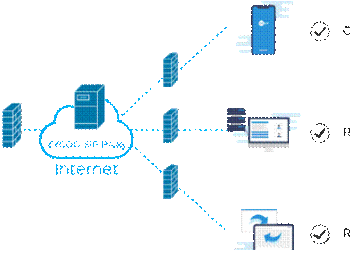Over the last few years, technology has transformed businesses in all sectors. With the introduction of things like AI in medical care to automated manufacturing processes, digitalisation has become a dependence for most industries. And the finance sector is no different.
Although you won’t find advanced AI taking care of all things finance just yet, there are some cool ways that the sector has gone digital. Here are just some of them.
How has digitalisation transformed finance businesses in the UK?
- Data storage
It’s no secret that financial institutions hold a lot of data. Although that’s not changed, the way it’s stored has. For example, data is now stored in cloud servers rather than on storage devices.
By making tax digital for VAT, it helps businesses improve data accuracy, increase security and ensure compliance.
- Improved efficiency
Tax can be a tricky topic at the best of times. It’s also highly time-consuming. Just some of the ways digitalisation has increased efficiency include:
- Reduced compliance workloads – A lot of the time, the most time-consuming task on a tax return is collecting data and ensuring spreadsheets are watertight. But automating this process can remove some of the nightmares associated with For example, automation can be used to capture tax directly from invoicing systems, potentially saving countless hours of continuous effort.
- Less chance of human error – No matter how great your employees are, people do make mistakes. By digitalising and improving the processes, you can eliminate manual errors and ensure compliance.
- Saves time – Rather than spending hours and hours on simple manual data entry tasks, digitalisation frees up your team to focus on more important things. Like business growth!
- Lower costs
With inflation rates soaring, many businesses are looking at ways to save costs. One way is through digitalisation.
So, how does spending money on digital systems save money?
There are a few reasons. The first is that it can help you make efficiency savings. Rather than paying people to do tedious manual data entry jobs, the tasks can be done much more efficiently and accurately. Although you’ll be paying for the software, this is usually much cheaper in the long run than paying someone for their time – especially senior employees and any additional costs.
You can then leverage your tax department for more appropriate tasks that can’t be done by a machine.
Secondly, there’s a simple notion that digital maturity drives revenue. Many businesses have put their success and growth down to automation. So, it’s well worth looking into digitalisation if you’ve got ambitious growth plans.
Final thoughts…
Digitalisation can be scary. But the truth of the matter is that businesses that fail to go digital are more likely to be left behind. We’ve already seen plenty of proof, particularly in the fintech space, that suggests digitalising has transformed and enhanced UK businesses. So, if you haven’t already gone digital, what are you waiting for?
David Prior
David Prior is the editor of Today News, responsible for the overall editorial strategy. He is an NCTJ-qualified journalist with over 20 years’ experience, and is also editor of the award-winning hyperlocal news title Altrincham Today. His LinkedIn profile is here.




![7 Best POS Software in the UK [2026 Edition]](https://todaynews.co.uk/wp-content/uploads/2026/02/7-Best-POS-Software-in-the-UK-2026-Edition-360x180.png)






































































